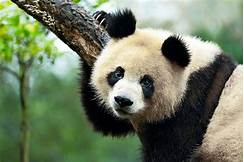Can You Have a Pet Lion?
The idea of having a pet lion may seem alluring, but the reality is that these majestic creatures are not suitable for domestication. While some people may boast about owning pet lions, it's crucial to understand the numerous reasons why having a lion as a pet is not only impractical but also dangerous.

Wild Instincts:
1. Lions are wild animals with inherent predatory instincts. Domesticating them erases their natural behaviors and causes them immense stress.
2. Lions require a vast territory to roam, hunt, and socialize. Confining them to a household or a small enclosure is cruel and deprives them of their freedom.
3. Lions have a natural hierarchy and communicate through complex social interactions. Removing them from their natural environment disrupts these vital connections.
Health and Safety Risks:
1. Lions are powerful predators with sharp teeth and claws. Even a seemingly playful interaction can result in serious injury or even death.
2. Lions require a specialized diet, including raw meat and bones. Procuring and preparing such a diet can be challenging and expensive.
3. Lions are prone to diseases and parasites that can be transmitted to humans, posing a significant health risk to the owners and their families.
Legal and Ethical Concerns:
1. In most countries, owning a lion as a pet is illegal or heavily regulated. Laws exist to protect the welfare of both humans and animals.
2. Keeping a lion in captivity deprives it of its natural habitat and contributes to the decline of wild lion populations.
3. Lions are often acquired through unethical means, such as poaching or illegal breeding, which perpetuates the cycle of animal exploitation.
Alternatives to Pet Lions:
1. If you are passionate about lions, consider supporting wildlife conservation organizations that work to protect their habitats and prevent their exploitation.
2. Visit zoos and sanctuaries that provide lions with a safe and appropriate environment, allowing you to observe and learn about these magnificent creatures from a safe distance.
3. Consider adopting a domesticated animal, such as a dog or a cat, that can provide companionship and fulfill your desire for a loving pet.
In conclusion, having a pet lion is not a viable or ethical option. Lions belong in the wild, where they can live according to their natural instincts and behaviors. Choosing to keep a lion as a pet not only poses significant risks to the animal and humans but also perpetuates the cycle of animal exploitation and endangers wild lion populations. Instead, consider supporting wildlife conservation efforts and enjoying the beauty of lions in their natural habitats.
Declaration: All article resources on this website, unless otherwise specified or labeled, are collected from online resources. If the content on this website infringes on the legitimate rights and interests of the original author, you can contact this website to delete it.






